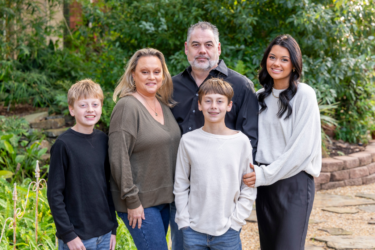When at home, your happy, bubbly child can’t stop talking. But when you attend larger family gatherings, she clams up and doesn’t utter a word. You thought she was just overly shy, but you’ve noticed that this happens at soccer practice, in school, and whenever anyone new is around. After reaching out to your child’s doctor, you discover that she has Selective Mutism.
According to the American Speech Language Hearing Association, Selective Mutism is “a complex childhood anxiety disorder characterized by a child’s inability to speak and communicate effectively in select social settings.”
For many of us, communicating is a part of our everyday lives. For a child with Selective Mutism, communicating daily is complicated. Communicating in unfamiliar social settings, or with unfamiliar people, can cause her to have social anxiety, and therefore, cause her to not speak. At first, it will seem like she is just being shy. However, there are other aspects that will be considered during diagnosis, including limited eye contact, if she avoids asking to use the restroom at school, and crying if pressured to speak.
Sheran Benton, a Speech-Language Pathologist at Access to Better Communication, shares, “The process for assessing and diagnosing Selective Mutism should involve a team of people and professionals.” The reason so many people are involved is because the goal of treatment is to help build comfort and consistency for the child. The treatment aims to increase the child’s confidence in different social settings, from the home to the classroom and beyond.
According to Benton, there isn’t one singular cause of Selective Mutism. The disorder tends to be caused by several different factors, including anxiety disorders (social or separation anxiety and obsessive-compulsive disorder), a timid temperament, environmental factors, and even genetic components.
Benton notes that in order to help your child, it’s important to catch Selective Mutism early. If your child displays symptoms for longer than a month, Benton encourages parents to take their child to a Speech-Language Pathologist. With early intervention and proper support, Selective Mutism can be treated.





